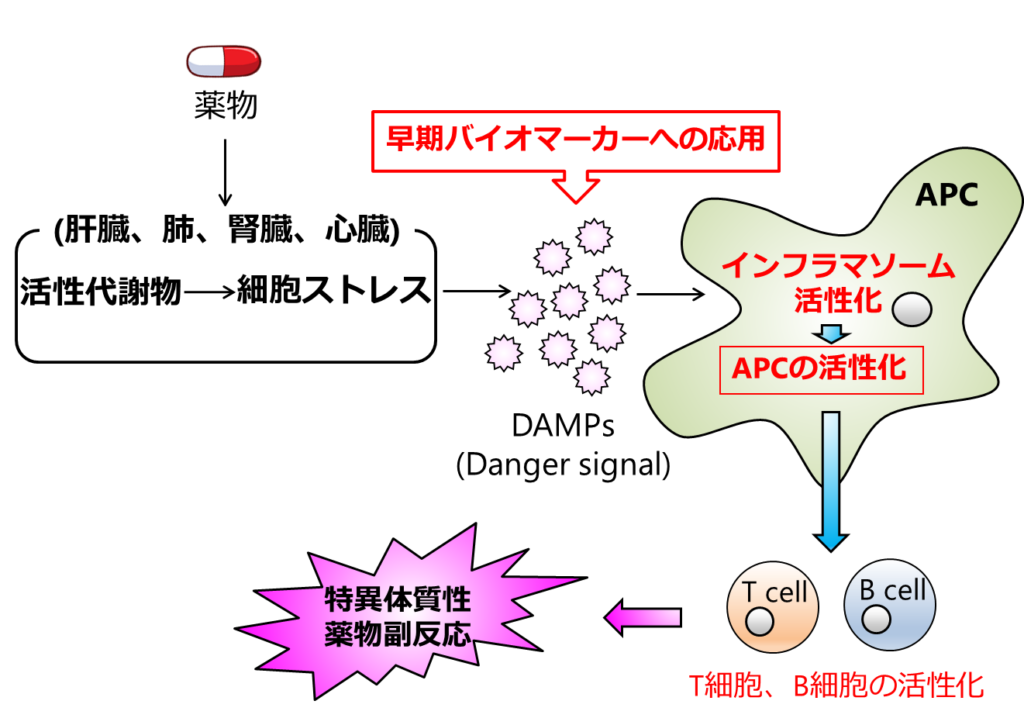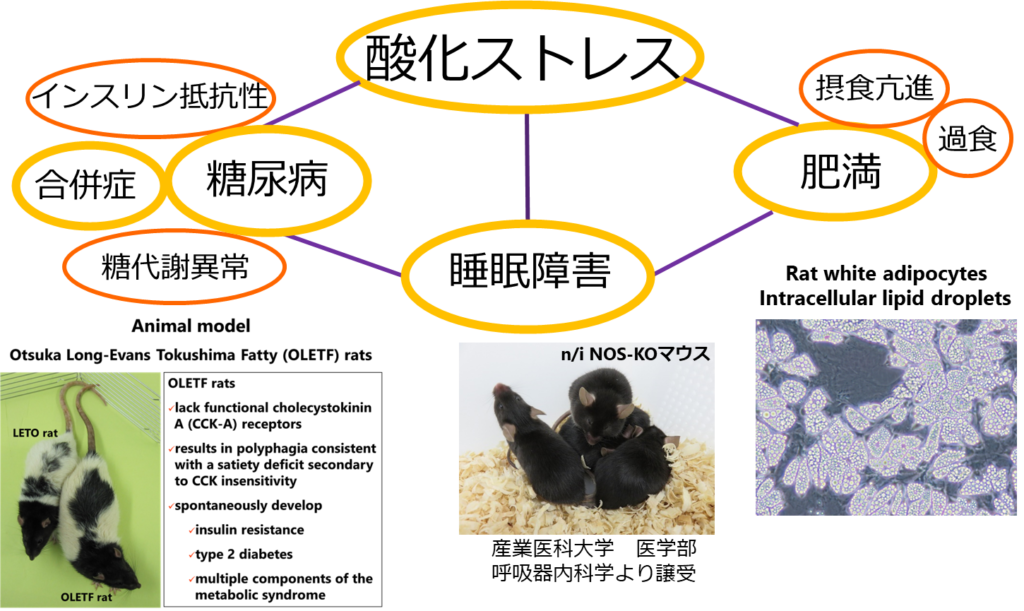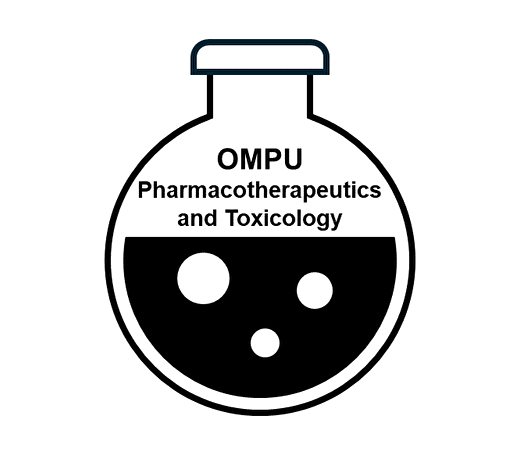教育・研究
研究で直面する問題において原因を抽出し、具体的な解決法を立案し実行する力を養う
Develop the ability to identify the factors associated with challenges in research to formulate and implement specific solutions.
研究で直面する問題には単一の原因でない場合が多く、何が最も大きな原因であるのかを抽出し、具体的な解決法を立案し実行することが重要です。当研究室では、研究を通して、これら能力を養うことを目的にしています。これらは臨床での問題を解決するために必要な能力であり、研究を通してその習得を行います。
Challenges encountered by researchers are often multifactorial; it is important to determine the most significant issue and formulate and implement specific solutions. Our laboratory aims to develop the ability to overcome clinical challenges through research.
研究テーマ
Research theme
重篤副作用(肝障害、肺障害、腎障害、心筋障害等)発症機構の解明と予測マーカーの探索
Investigation of mechanisms underlying serious adverse effects and the associated predictive markers
市場撤退を余儀なくされた薬物や開発中に臨床試験が中止された薬物の原因の1つとして、免疫反応が関与する副作用の発症が考えられています。私達は各組織(肝臓、肺、腎臓、心臓)の実質細胞に非実質細胞である抗原提示細胞を組み込んだin vitroアッセイシステムおよびPD-1ノックアウトマウスに抗CTLA-4抗体を投与し免疫耐性を解除した動物モデルを構築し、特異体質性薬物副反応の発症機序の検討を行っています。特異体質性薬物副反応の発症には、薬物自身あるいはその反応性代謝物が細胞ストレスになることで、細胞からdamage associated molecular patterns(DAMPs)が産生され、抗原提示細胞を活性化することが明らかとなってきています。研究室では特異体質性薬物副反応の発症予測システムの開発と早期バイオマーカの探索を目的としています。
Immunological adverse effects constitute an important factor associated with drug withdrawal from the market or their discontinuation from clinical trials during development. We constructed an in vitro assay system in which antigen-presenting non-parenchymal cells were incorporated into the parenchymal cells of each tissue (liver, lung, kidney, and heart) and an animal model in which anti-cytotoxic T-lymphocyte-associated antigen-4 antibody was administered to programmed death-1 knockout mice to break immune tolerance and to investigate the mechanism underlying specific adverse drug reactions. Investigation of the pathogenetic mechanisms underlying idiosyncratic adverse drug reactions is underway. Idiosyncratic adverse drug reactions occur secondary to cellular stress from the drug itself or its reactive metabolites, which induce the production of damage-associated molecular patterns from cells and activate antigen-presenting cells. We aim to develop a prediction system for the onset of idiosyncratic adverse drug reactions and search for early biomarkers.

酸化ストレス関連疾患の病態解明と予防法に関する研究
Research on pathophysiology and prevention of oxidative stress-related diseases
心血管病のリスクファクターである高血圧、高脂血症、糖尿病などがいずれも生体の酸化ストレスを増大させることが明らかにされています。また、睡眠時無呼吸症候群などの睡眠障害と生活習慣病発症との関連性も指摘されています。さらに、酸化ストレスは種々の心血管病の発症・進展において重要な役割を果たしています。研究室では、肥満、糖尿病、動脈硬化、心筋症などのモデル動物を用い、酸化ストレス関連疾患の病態解明とその予防法の開発を目指しています。
Hypertension, hyperlipidemia, and diabetes, which serve as risk factors for cardiovascular disease, increase oxidative stress in an organism. Studies have reported an association between sleep disorders such as sleep apnea syndrome and lifestyle-related diseases. Oxidative stress plays an important role in the onset and progression of various cardiovascular diseases. Using animal models of obesity, diabetes, atherosclerosis, and cardiomyopathy, our laboratory aims to gain deeper insight into the pathophysiology of oxidative stress-related diseases to facilitate the development of preventive strategies against these.

在宅医療における薬物血中濃度モニタリング(TDM)の臨床的有用性に関する研究
Research on clinical usefulness of Therapeutic Drug Monitoring in home health care
住み慣れた生活の場において必要な医療・介護サービスが受けられ、安心して自分らしい生活が実現できるよう、在宅医療が推進されています。一方で、医療はより個別化が求められる時代となっており、在宅医療においてもその実現が求められています。薬物治療の個別化を行う上での一つのツールとして、薬物の血中濃度測定をはじめとした治療薬物モニタリング(TDM)があります。研究室では、在宅医療におけるTDMの臨床的有用性について研究を行い、地域医療への貢献を目指しています。
Home medical care is being promoted to facilitate the delivery of medical and nursing care services to patients in the familiar and comfortable environment of their residence to provide them peace of mind. Individualized medical care is required in current times. Therapeutic drug monitoring (TDM), which includes measurement of drug concentrations in the blood is a tool for individualized drug therapy. However, currently, TDM is rarely used in clinical practice. We aim to contribute to community health care via research on the clinical usefulness of TDM in home health care through improved implementation of TDM.

